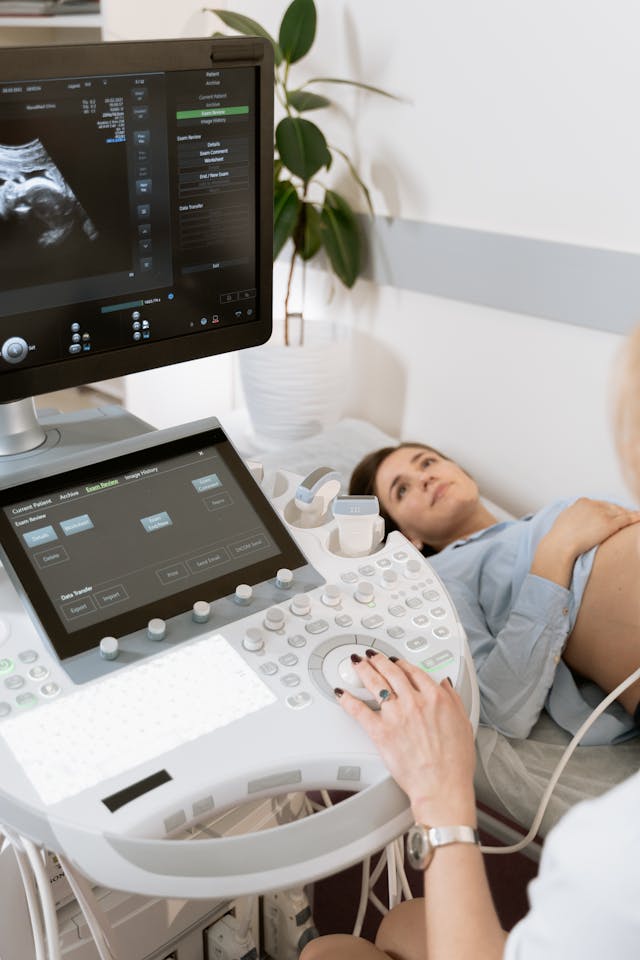Eclampsia is seizures that happen to pregnant women with preeclampsia.
Eclampsia symptoms in pregnancy include high blood pressure, blurry vision, convulsions, and headache. It is a rare but serious condition that happens in the second half of pregnancy.

What is eclampsia?
Eclampsia is a serious complication of preeclampsia. Preeclampsia is a disorder in pregnancy where women have high blood pressure and protein in their urine.
Eclampsia occurs when a pregnant woman with preeclampsia develops seizures and convulsions, the main eclampsia symptoms in pregnancy.
Eclampsia affects about 3% of women with preeclampsia but it can cause serious complications that need urgent medical care.
Early delivery for the baby is recommended depending on the severity of the eclampsia symptoms in pregnancy and on how many weeks the pregnant woman is.
Causes of eclampsia
Experts believe that it begins in the placenta. In early pregnancy, new blood vessels develop to supply the placenta with oxygen and nutrients.
In women with preeclampsia, these blood vessels don't seem to work properly which leads to irregular circulation of blood in pregnant women.
This abnormal blood flow in blood vessels may interfere with the brain's ability to function causing seizures and convulsions which are the main eclampsia symptoms in pregnancy.
Other disorders too like:
Gestational hypertension
It is high blood pressure that begins in the 20th week of pregnancy without problems in the kidneys or other organs. Pregnant women with gestational hypertension may develop preeclampsia.
Chronic hypertension
It is a high blood pressure that was present before pregnancy.
Chronic hypertension with proteinuria
It occurs in women with chronic hypertension who develop worsening blood pressure and protein in the urine.
Who is at risk of eclampsia?
- Gestational or chronic hypertensive woman
- Diabetic women before pregnancy
- Pregnant women older than 35 years old or younger than 20 years old
- Auto-immune condition
- Pregnant women with a family or personal history of preeclampsia or eclampsia
- Obesity
Eclampsia symptoms in pregnancy
The most common eclampsia symptoms in pregnancy are seizures, severe confusion, and loss of consciousness.
Many women will have warning signs before having eclampsia symptoms in pregnancy like:
- Severe headaches
- Blurred vision
- Sudden edema especially in the hands or face
- Difficulty in breathing
- Abdominal pain on the upper right side
- Nausea and vomiting
All of these alongside high blood pressure and proteinuria
Complications of eclampsia
- Placenta abruption
- Preterm labor
- Blood clotting
- Stroke
- Stillbirth
- Death

How is eclampsia diagnosed?
If you have preeclampsia or if you already have eclampsia symptoms in pregnancy like seizures and convulsions your doctor will order some tests like:
- Blood tests: blood tests will show abnormal factors like red blood cell count and platelet count.
- Creatinine test: creatinine is a waste product that is filtered by the kidney, its increased level indicates a sign of a kidney problem.
- Urine test: This is done to check the levels of protein in urine.
Your obstetrician will monitor the fetus through ultrasound to check heart rate, size, and other factors.
Management and treatment
The best treatment for eclampsia is giving birth if the fetus is 37 weeks or more if not your healthcare provider will prescribe medications to manage the eclampsia symptoms in pregnancy like
- Anticonvulsants or magnesium sulfate infusion for seizures.
- Blood pressure medications to lower elevated blood pressure.
- Steroids help in developing the fetus's lungs before delivery.
Prevention
- If you have a history of preeclampsia you should follow a healthy diet before getting pregnant again.
- Attend all your prenatal appointments.
- Starting a low dose of aspirin in the first trimester may decrease the risk of getting preeclampsia if you are at a higher risk of it.
- Keep your stress levels low.
- Monitor your blood pressure regularly.
When to see a doctor?
Is eclampsia fatal?
No, it doesn’t always lead to death, with monitoring and treatment most women will recover.
Go to the emergency directly if you have one of the eclampsia symptoms in pregnancy that require medical attention like seizures, blurred vision, convulsions, severe headache, vaginal bleeding, or feeling no movement for the fetus.
Eclampsia is rare but can be so serious getting the proper medical care could prevent you from developing it so always let your obstetrician know if you experience one of the eclampsia symptoms in pregnancy.
Read more about:


You must be logged in to post a comment.